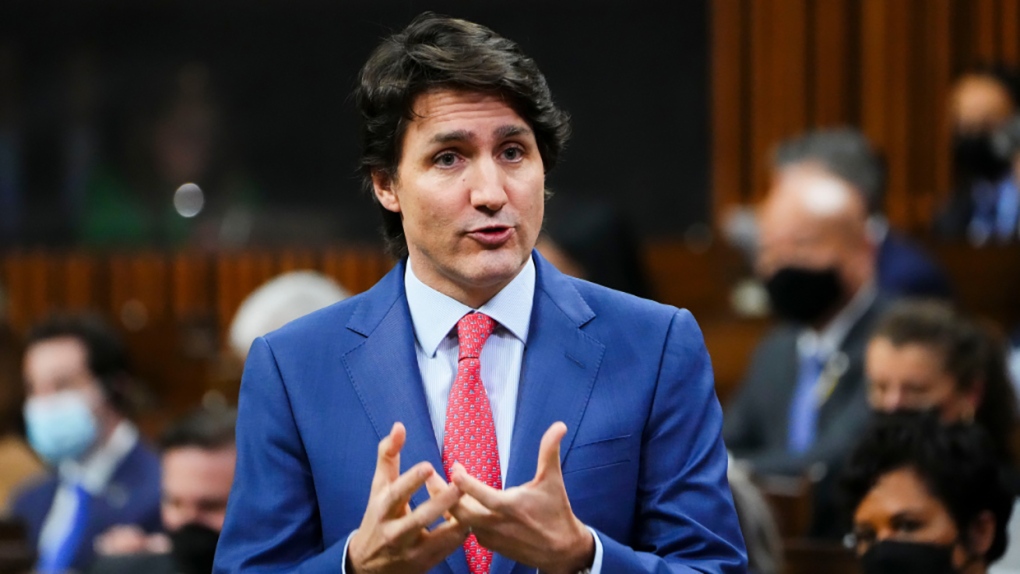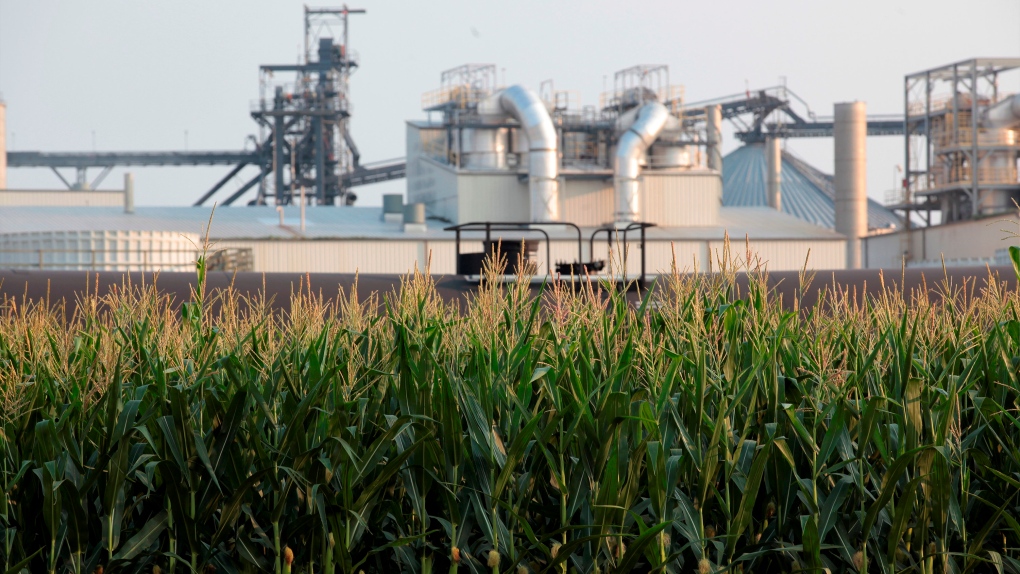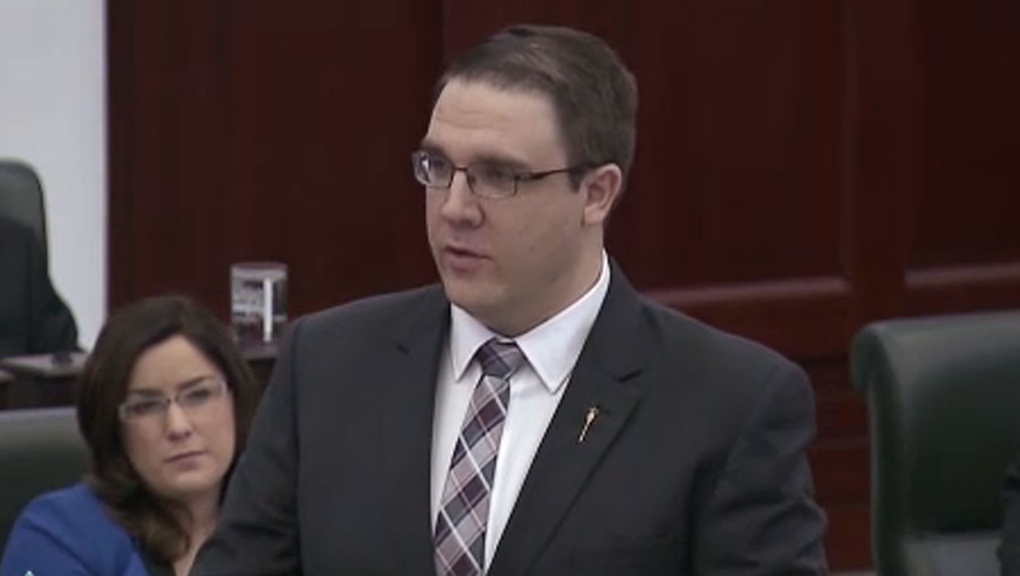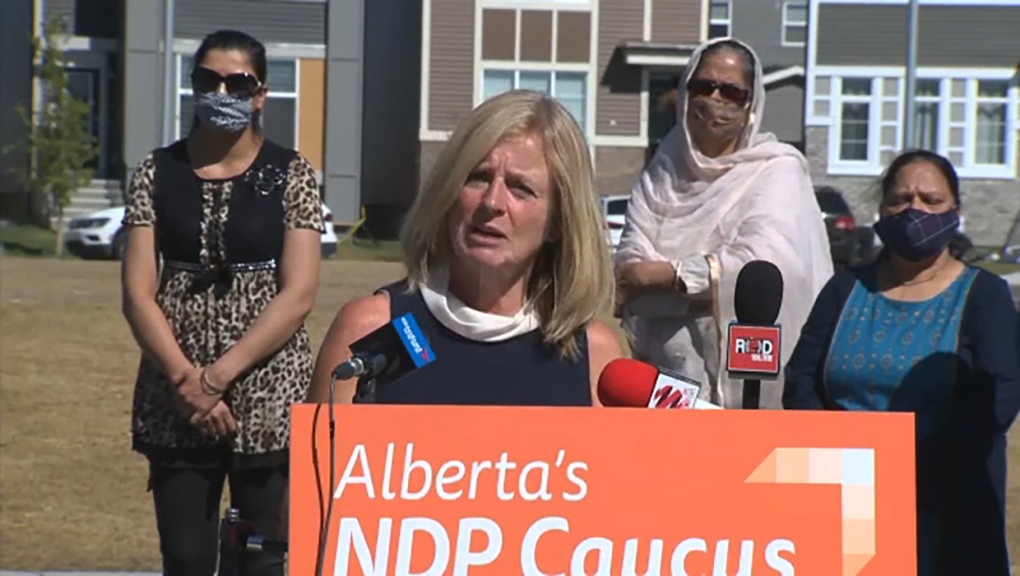Albertan energy watchers respond to aggressive federal climate plan
As oil prices climb and numerous markets boycott Russian oil, the Canadian government wants Canada's resource sector to slash emissions, while some energy analysts say serious action is already underway for an energy transition and this new plan moves too fast.
The new climate plan is calling for the oil and gas industry to reduce greenhouse gas emissions by two fifths or 42 per cent by 2030 -- at 60 per cent of previous emissions targets set in 2005.
The new initiative tabled in the House of Commons earlier today also projects that electricity emissions will be almost zero by the end of the decade.
The plan includes $9 billion for climate action grants and loans and $1.7 billion for electric vehicle rebates.
Speaking from Vancouver Tuesday morning Prime Minister Justin Trudeau said the plan is not too aggressive.
"The work we have to do, yes, is ambitious, but it's also realizable."
He then added, "we're going to reach that 40 per cent cut in Canada's emissions by asking all different sectors, including oil and gas, to be incredibly ambitious and concrete in their ability to do that. This is the plan that's going to get us to net zero by 50 and 40 per cent by 2030."
An accompanying report to the climate plan says the oil and gas sector is Canada's heaviest emitter with 26 per cent of total emissions.
 Prime Minister Justin Trudeau rises during question period in the House of Commons on Parliament Hill in Ottawa on March 2, 2022. THE CANADIAN PRESS/Sean Kilpatrick
Prime Minister Justin Trudeau rises during question period in the House of Commons on Parliament Hill in Ottawa on March 2, 2022. THE CANADIAN PRESS/Sean Kilpatrick
ENERGY TRANSITION UNDERWAY
Some Calgary-based energy watchers say the resource industry is already implementing plans to reduce carbon and methane emissions, adding that many have already agreed to an energy transition.
"The companies are (already) doing this, they are tracking the emissions, and they're finding ways to reduce the emissions. And they're also trying to find ways for offsets, because the offsets count as ways of saving," said Bob Schulz, professor with the Haskayne School of Business at the University of Calgary.
He says industry leaders are looking into investing in carbon capture, carbon storage, carbon offset and other absorption mechanisms so that green house has emissions are minimized.
 Project developers plan to build carbon capture pipelines connecting dozens of Midwestern ethanol refineries, such as this one in Chancellor, South Dakota, shown on Thursday, July 22, 2021. (AP Photo/Stephen Groves)
Project developers plan to build carbon capture pipelines connecting dozens of Midwestern ethanol refineries, such as this one in Chancellor, South Dakota, shown on Thursday, July 22, 2021. (AP Photo/Stephen Groves)
Schulz says the federal government is using the high price of oil at the West Texas Intermediate benchmark above $100 a barrel as an opportunity to push companies further.
"Rather than spending the money or allocating the money for dividends, or for bonuses for something else, the government saying is, put it into rapid emissions reductions. If I were the industry, I'd say well, okay, we have some money to do that," said Schulz.
The federal carbon tax on oil and gas producers in Canada scheduled to hit $170 per tonne by 2030, and industry leaders have forecasted to account for that, said Schulz.
Another industry watcher says the timeline outlined Tuesday is too hasty for industry to respond.
"In a normal world, six years goes by before you actually implement something. So (the industry) is talking about what we can do in eight years, there are some things (it) can do," said Richard Masson, executive fellow from the School of Public Policy at the University of Calgary.
Masson says Alberta's resource sector is at a standing start and needs momentum to see the impacts of projects that likely won't be realized until 2035 or 2040.
He also says that energy security has been highlighted with the Russian invasion of Ukraine and numerous markets responding by boycotting Russian oil; and Canada needs to be encouraged to produce energy with reliable reporting.
"If Canada is able to increase production, let's say a million barrels a day over the next decade, and replace Russian production, it increases Canada's measured greenhouse gas emissions, potentially, but it doesn't increase global missions," said Masson.
ALTA. GOVERNMENT LEADERS CALL PLAN "INSANE"
Speaking from the Alberta legislature on Tuesday afternoon, Environment Minister Jason Nixon called the federal announcement "insane."
"This will result in devastating economic consequences all across the country, for our largest industry, at the same time with no environmental impact of any significance, because again, the federal government has not met one targeted set," said Nixon.
Nixon also says the plan will increase the burden of the rising cost of living on Canadians.
"All that this plan will do is see an increase in cost of gas. We're on a trajectory for about 40 cents a litre increase in gas underneath this plan just on carbon taxes alone, continuously electricity rates go through the roof, and continuously the cost of everything goes up."
 UCP MLA attacked over decade-old incident
UCP MLA attacked over decade-old incident
Nixon is also tabling a motion to call on the federal government to stop the next incremental increase of the carbon tax by April 1.
ENERGY GROUPS SEEK CONSULTATION
Canadian Natural Resources, Cenovus Energy, Imperial, MEG Energy and Suncor Energy partnered to create the 'Pathways to Net Zero' initiative to achieve net-zero emissions by 2050, and a spokesperson says Tuesday's announcement has some similarities and differences.
“We also need to recognize the time required to build the infrastructure, deploy the necessary technology, secure appropriate regulatory approvals, and implement economic incentives to achieve these reductions," said Mark Cooper form Pathways Alliance.
He later added the federal government is ambitious to drive even faster results, however "with the 2030 milestone only eight years away, we need realistic and achievable goals."
In a statement from the Canadian Association of Petroleum Producers (CAPP), leaders say Canada's resources can provide lower emission resources to the world's energy mix.
"One of the largest contributions Canada can make to lowering global greenhouse gas emissions is by exporting Canadian liquefied natural gas (LNG) to displace the use of coal in the world’s energy mix," said Terry Abel, executive vice president for CAPP.
He adds the current energy crisis brought on by the Russian invasion of Ukraine stems from years of energy demand leading to an increasing reliance on dictatorships to provide critical energy supplies.
"We look forward to the consultation process for the elements of the plan and to supporting Canada’s role in reducing global emissions while enhancing energy security and affordability," said Abel.
GREEN GROUPS WANT MORE
Some environmental groups say the plan is on the right track.
"While some may suggest that number is too much, and others not enough, it represents a fair and significant reduction of 81 megatonnes from today," said Merran Smith, executive director at Clean Energy Canada.
“We’re also pleased to see a bolder trajectory for our transportation sector, the second largest source of emissions in the country," said Smith.
OTHER ALBERTA LEADERS OUTRAGED
NDP Opposition Leader Rachel Notley says she has a serious problem with the plan announced Tuesday.
“Without massive changes in technology across every sector and huge changes in global energy demand, reaching the 2030 target — in just over seven years — is fantasy,” Notley said.
 Alberta Opposition Leader Rachel Notley criticized the province's school re-entry plan Thursday, labelling it 'reckless'.
Alberta Opposition Leader Rachel Notley criticized the province's school re-entry plan Thursday, labelling it 'reckless'.
She also criticized Premier Jason Kenney for not championing Alberta's resources strongly enough in to Ottawa "because the Premier of Alberta is not spending his time making this argument. He is spending his time defending himself from his caucus, from various investigations, trying to sell UCP memberships and save his job."
More details of the climate plan will be released with the federal spring budget on April 7.
With files from The Canadian Press
CTVNews.ca Top Stories

Can the Governor General do what Pierre Poilievre is asking? This expert says no
A historically difficult week for Prime Minister Justin Trudeau and his Liberal government ended with a renewed push from Conservative Leader Pierre Poilievre to topple this government – this time in the form a letter to the Governor General.
Two U.S. Navy pilots shot down over Red Sea in apparent 'friendly fire' incident, U.S. military says
Two U.S. Navy pilots were shot down Sunday over the Red Sea in an apparent 'friendly fire' incident, the U.S military said, marking the most serious incident to threaten troops in over a year of America targeting Yemen's Houthi rebels.
Ottawa MP Mona Fortier appointed chief government whip
Ottawa-Vanier MP Mona Fortier has been appointed as chief government whip, the latest addition in a major reshuffle of Prime Minister Justin Trudeau's cabinet.
opinion Tom Mulcair: Prime Minister Justin Trudeau's train wreck of a final act
In his latest column for CTVNews.ca, former NDP leader and political analyst Tom Mulcair puts a spotlight on the 'spectacular failure' of Prime Minister Justin Trudeau's final act on the political stage.
B.C. mayor gets calls from across Canada about 'crazy' plan to recruit doctors
A British Columbia community's "out-of-the-box" plan to ease its family doctor shortage by hiring physicians as city employees is sparking interest from across Canada, says Colwood Mayor Doug Kobayashi.
Bluesky finds with growth comes growing pains - and bots
Bluesky has seen its user base soar since the U.S. presidential election, boosted by people seeking refuge from Elon Musk's X, which they view as increasingly leaning too far to the right given its owner's support of U.S. president-elect Donald Trump, or wanting an alternative to Meta's Threads and its algorithms.
'There’s no support': Domestic abuse survivor shares difficulties leaving her relationship
An Edmonton woman who tried to flee an abusive relationship ended up back where she started in part due to a lack of shelter space.
opinion King Charles' Christmas: Who's in and who's out this year?
Christmas 2024 is set to be a Christmas like no other for the Royal Family, says royal commentator Afua Hagan. King Charles III has initiated the most important and significant transformation of royal Christmas celebrations in decades.
OPP find wanted man by chance in eastern Ontario home, seize $50K worth of drugs
A wanted eastern Ontario man was found with $50,000 worth of drugs and cash on him in a home in Bancroft, Ont. on Friday morning, according to the Ontario Provincial Police (OPP).

































